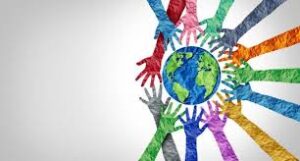Exploring the Rich Tapestry of Culture: Embracing Diversity in a Globalized World

In an era of unprecedented global connectivity, our understanding and appreciation of culture have never been more important. Culture, in its many forms, shapes our identities, influences our daily lives, and fosters a deeper connection with the world around us. As we navigate through this rich tapestry of human expression, it’s crucial to embrace and celebrate cultural diversity.
The Essence of Culture
Culture is more than just art, music, and cuisine; it is the collective manifestation of human creativity, values, beliefs, and practices that define societies. It encompasses language, traditions, customs, rituals, and shared experiences that bind people together. From the vibrant festivals of India to the serene tea ceremonies of Japan, culture provides a window into the soul of different communities.
The Role of Culture in Identity
Our cultural backgrounds play a significant role in shaping our identities. They influence our perspectives, behaviors, and interactions with others. For instance, the familial bonds and communal values emphasized in many African cultures can contrast sharply with the individualism often celebrated in Western societies. These cultural differences offer a broader perspective on what it means to live a meaningful life.
The Impact of Globalization on Culture
Globalization has brought cultures closer than ever before, leading to a fascinating exchange of ideas and practices. This interconnectedness allows us to experience and learn from cultures that were once distant. Consider how Japanese cuisine has become a staple in many countries, or how K-pop has taken the global music scene by storm. While this exchange enriches our lives, it also raises questions about cultural appropriation and the preservation of traditional practices.
Cultural Exchange vs. Cultural Appropriation
As we enjoy the fruits of cultural exchange, it’s essential to approach it with respect and sensitivity. Cultural appropriation, where elements of one culture are used by another in a way that is perceived as exploitative or disrespectful, can be a contentious issue. To navigate this, it’s crucial to educate ourselves about the origins and significance of cultural practices and engage with them in a way that honors their history and context.
The Value of Cultural Preservation
Amidst the rapid pace of globalization, preserving cultural heritage is vital. Traditional crafts, languages, and rituals offer valuable insights into the history and values of different communities. Efforts to document and protect these elements ensure that future generations can appreciate and learn from them. Organizations and initiatives worldwide work tirelessly to safeguard endangered cultural practices and promote awareness.
Fostering Cultural Understanding
Promoting cultural understanding involves more than just celebrating diversity; it requires genuine engagement and dialogue. Here are some ways to foster cultural appreciation:
- Education: Learn about different cultures through books, documentaries, and conversations with people from diverse backgrounds. Understanding the history and context of various practices enriches our appreciation.
- Travel: If possible, travel to different parts of the world to experience cultures firsthand. Immersing yourself in local traditions and customs provides invaluable insights and fosters empathy.
- Community Involvement: Participate in cultural festivals, workshops, and events in your community. These experiences offer a chance to engage with cultural practices and connect with others.
- Support: Support businesses and artisans that promote and preserve cultural traditions. This helps sustain cultural practices and ensures their continued relevance.
Conclusion
Culture is the vibrant thread that weaves together the human experience. Embracing cultural diversity enriches our lives, broadens our horizons, and fosters a more inclusive and harmonious world. By valuing and respecting different cultures, we contribute to a global community where every tradition and practice has a place. In celebrating culture, we celebrate the essence of what it means to be human, united in our shared experiences and aspirations.
